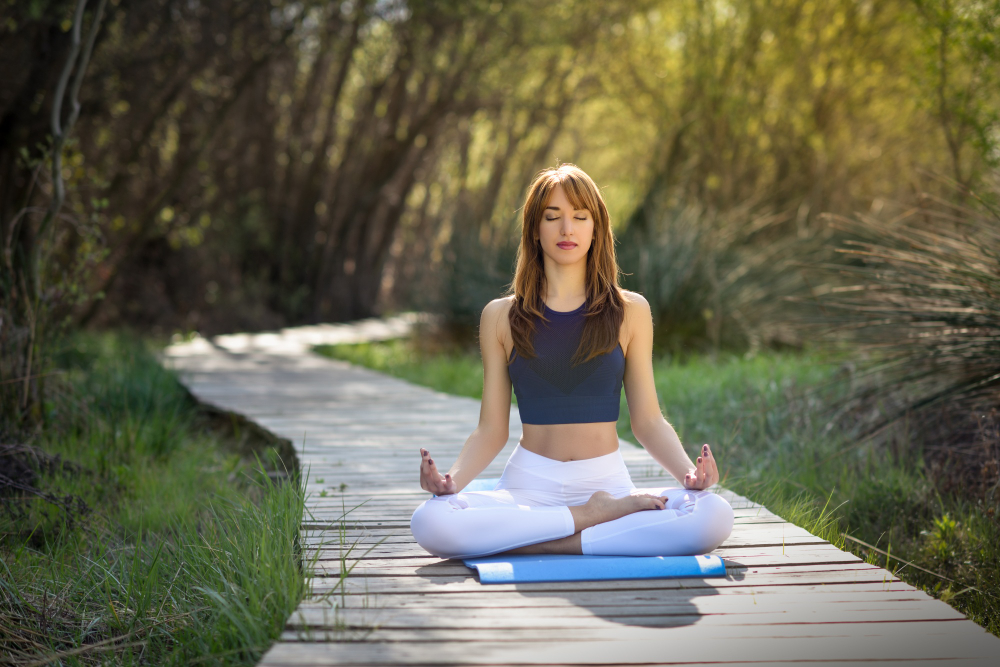By: Lana Shapiro, Holistic Life Coach, Reiki Master & Lifepath Astrology Reader
What is Yoga?
Yoga is essentially a spiritual discipline based on an extremely subtle science, which focuses on bringing harmony between mind and body. It is an art and science of healthy living. The word ‘yoga’ is derived from the Sanskrit root ‘Yuj’, meaning ‘to join’ or ‘to yoke’ or ‘to unite’. As per Yogic scriptures the practice of yoga leads to the union of individual consciousness with that of the Universal Consciousness, indicating a perfect harmony between the mind and body, Man & Nature.
What are the Origins of Yoga?
The practice of yoga is believed to have started with the very dawn of civilization. The science of yoga has its origin thousands of years ago, long before the first religions or belief systems were born, over 5000 years ago. In the yogic lore, Shiva is seen as the first yogi.
Historical evidences of the existence of yoga were seen in the pre-Vedic period (2700 B.C.). Tentatively, the period between 500 BC - 800 A.D. is considered as the Classical period which is also considered as the most fertile and prominent period in the history and development of yoga.
For many, the practice of yoga is restricted to Hatha Yoga and Asanas (postures). However, among the Yoga Sutras, just three sutrasare are dedicated to asanas. Fundamentally, hatha yoga is a preparatory process so that the body can sustain higher levels of energy. The process begins with the body, then the breath, the mind, and the inner self.
Yoga is also commonly understood as a therapy or exercise system for health and fitness. While physical and mental health are natural consequences of yoga, the goal of yoga is more far-reaching. “Yoga is about harmonizing oneself with the universe. It is the technology of aligning individual geometry with the cosmic, to achieve the highest level of perception and harmony.”
Yoga does not adhere to any particular religion, belief system or community; it has always been approached as a technology for inner wellbeing. Anyone who practices yoga with involvement can reap its benefits, irrespective of one’s faith, ethnicity or culture.
What are the Benefits of Yoga?
A regular yoga practice can promote endurance, strength, calmness, flexibility and well-being. Additional benefits to yoga are included but not limited to:
Cardiovascular benefits
Several small studies have found yoga to have a positive effect on cardiovascular risk factors: It helped lower blood pressure in people who have hypertension. It also lowered excessive blood sugar levels in people with non-insulin dependent diabetes and reduced their need for medications.
Enhancing fitness
Yoga is known for its ability to soothe tension and anxiety in the mind and body. But it can also have an impact on a person’s exercise capacity.
A boost to weight loss and maintenance
People who practice yoga and are mindful eaters are more in tune with their bodies. They may be more sensitive to hunger cues and feelings of fullness.
A better body image
Yoga develops inner awareness. It focuses your attention on your body’s abilities at the present moment. It helps develop breath and strength of mind and body.
Increases your
blood flow
Yoga gets your blood flowing. More specifically, the relaxation exercises you learn in yoga can help your circulation, especially in your hands and feet. Yoga also gets more oxygen to your cells, which function better as a result.
Makes you happier
Consistent yoga practice can improve depression and lead to a significant increase in serotonin levels and a decrease in stress hormone cortisol
Helps you focus
An important component of yoga is focusing on the present.
Improves your balance
Regularly practicing yoga increases the ability to feel what your body is doing and where it is in space and improves balance.
Relaxes your system
Yoga encourages you to relax, slow your breath, and focus on the present
Helps you sleep deeper
Yoga can provide relief from the hustle and bustle of modern life. Another by-product of a regular yoga practice, is better sleep—which means you’ll be less tired and stressed and less likely to have accidents.
Gives your lungs room to breathe
Yoga also promotes breathing through the nose, which filters the air, warms it and humidifies it, removing pollen and dirt and other things you’d rather not take into your lungs
Builds awareness for transformation
Yoga and meditation build awareness. And the more aware you are, the easier it is to break free of destructive emotions.

